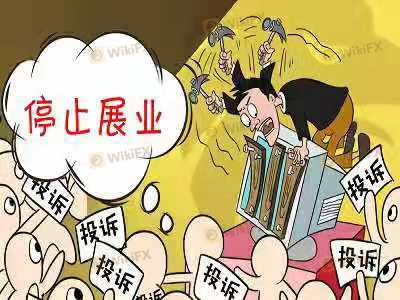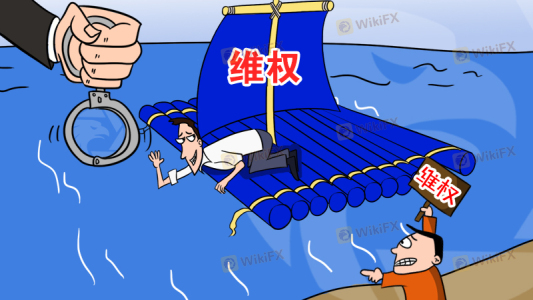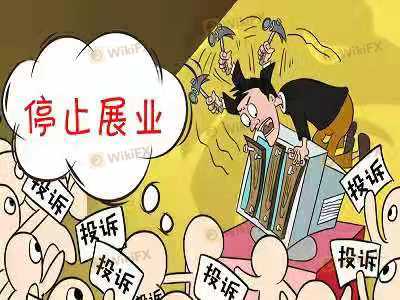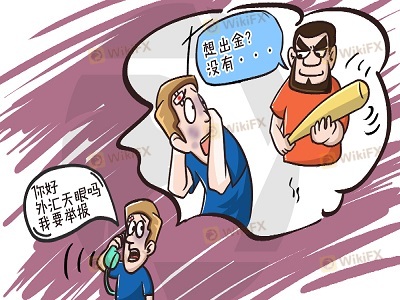Is Wock safe?

Pros
Cons
Is Wock Safe or a Scam?
Introduction
Wock, operating under the name Wock Hai TK Capital Limited, positions itself as a player in the forex trading market, offering a platform for traders to engage in currency exchanges. As the forex market continues to grow, it attracts both seasoned investors and newcomers eager to capitalize on currency fluctuations. However, the rapid expansion of this market also brings an influx of potentially unscrupulous brokers. Thus, it is crucial for traders to thoroughly evaluate the credibility of any forex broker they consider, including Wock. This article aims to provide a comprehensive assessment of Wock's legitimacy by examining its regulatory status, company background, trading conditions, client safety measures, customer experience, platform performance, and overall risk profile.
Regulation and Legitimacy
The regulatory status of a forex broker is one of the most critical factors that determine its reliability. Wock claims to operate in the forex trading space; however, its regulatory situation raises several red flags. According to various sources, Wock is not regulated by any reputable financial authority, which is a significant concern for potential traders. The lack of regulation can expose traders to various risks, including fraud and mismanagement of funds.
Here is a summary of Wock's regulatory information:
| Regulatory Authority | License Number | Regulatory Region | Verification Status |
|---|---|---|---|
| NFA | Unauthorized | United States | Not Verified |
The absence of a regulatory license from a recognized authority, such as the Financial Conduct Authority (FCA) or the Securities and Exchange Commission (SEC), is alarming. These organizations enforce strict standards to ensure that brokers operate fairly and transparently. The fact that Wock operates without such oversight raises significant doubts about its compliance with industry norms and standards.
Company Background Investigation
Wock was founded in 2021, which makes it a relatively new entrant in the forex market. The company is based in the United Kingdom, but its lack of regulatory oversight from the National Futures Association (NFA) in the United States is concerning. The ownership structure of Wock is not well-documented, and details about its management team are scarce. This opacity can be a warning sign, as reputable brokers typically provide clear information about their leadership and corporate governance.
The lack of transparency regarding the company's history and ownership raises questions about its credibility. A well-established broker usually has a track record and a transparent operational history, which helps build trust among clients. In Wock's case, the limited information available makes it difficult for potential traders to assess the broker's reliability.
Trading Conditions Analysis
When considering whether Wock is safe, it is essential to analyze its trading conditions, including fees and spreads. Wock's fee structure appears to be less favorable compared to industry standards, which can be a significant drawback for traders looking to maximize their profits.
Here is a comparison of Wock's trading costs with industry averages:
| Fee Type | Wock | Industry Average |
|---|---|---|
| Major Currency Pair Spread | High | Low |
| Commission Model | Unclear | Clear |
| Overnight Interest Range | Not Disclosed | Standard |
The high spreads and unclear commission model could indicate that Wock is not entirely upfront about its fees, which is a common tactic used by less reputable brokers to exploit traders. Transparency in fee structures is crucial for traders to make informed decisions, and the lack of clarity on Wock's part raises further concerns about its legitimacy.
Client Funds Safety
The safety of client funds is paramount in the forex trading industry. Wock's approach to client fund security is unclear, with no specific information available regarding fund segregation, investor protection, or negative balance protection policies. Reputable brokers employ stringent measures to ensure that client funds are kept separate from their operational funds, providing an additional layer of security for traders.
Without clear policies on these aspects, potential traders may find themselves at risk. Historical incidents involving brokers that mishandled client funds underscore the importance of thorough due diligence before engaging with any trading platform. The absence of documented safety measures at Wock is a significant concern that could deter potential clients.
Customer Experience and Complaints
Understanding customer experiences is crucial when evaluating whether Wock is safe. Reviews and feedback from existing users can provide insights into the broker's operational integrity. Unfortunately, Wock has received mixed reviews, with several complaints about withdrawal issues and lack of responsive customer service.
Here is a summary of common complaint types associated with Wock:
| Complaint Type | Severity Level | Company Response |
|---|---|---|
| Withdrawal Delays | High | Poor |
| Lack of Support | Medium | Poor |
Many users have reported difficulties in withdrawing their funds, a significant red flag for any broker. The lack of effective communication from the company further exacerbates these issues, leading to frustration among clients. These patterns of complaints indicate a potential risk for traders considering Wock as their broker.
Platform and Trade Execution
The performance of Wock's trading platform is another vital aspect to consider. Users have reported mixed experiences regarding the platform's stability and execution quality. Issues such as slippage and order rejections have been noted, which can significantly impact trading outcomes.
A reliable trading platform should provide seamless execution and minimal slippage. Unfortunately, the reports of execution issues at Wock suggest that traders may face challenges that could hinder their trading performance. This is particularly concerning for those who rely on precise execution to capitalize on market opportunities.
Risk Assessment
In evaluating whether Wock is safe, it is essential to consider the overall risk profile associated with trading with this broker. The lack of regulation, combined with mixed customer feedback and unclear trading conditions, presents various risks for potential traders.
Here is a risk summary for Wock:
| Risk Category | Risk Level (Low/Medium/High) | Brief Explanation |
|---|---|---|
| Regulatory Risk | High | No regulation by recognized authorities |
| Financial Risk | High | Unclear fee structure and withdrawal issues |
| Operational Risk | Medium | Mixed user experiences with platform stability |
To mitigate these risks, potential traders are advised to conduct thorough research and consider using brokers with solid regulatory backing and transparent operations.
Conclusion and Recommendations
After examining the various aspects of Wock, it is evident that significant concerns arise regarding its legitimacy and safety. The lack of regulatory oversight, coupled with mixed customer experiences and unclear trading conditions, suggests that traders should exercise caution when considering this broker.
For those looking to engage in forex trading, it may be prudent to explore alternative brokers that are well-regulated and have a proven track record of reliability. Reputable options include brokers regulated by top-tier authorities such as the FCA or ASIC, which provide better security for client funds and a more transparent trading environment.
In summary, while Wock presents itself as a potential trading option, the numerous red flags indicate that it may not be the safest choice for traders. Is Wock safe? Based on the available evidence, it is advisable to approach this broker with caution and consider other, more reliable alternatives.
Is Wock a scam, or is it legit?
The latest exposure and evaluation content of Wock brokers.




Wock Similar Brokers Safe
Whether it is a legitimate broker to see if the market is regulated; start investing in Forex App whether it is safe or a scam, check whether there is a license.
Wock latest industry rating score is 1.56, the higher the score the safer it is out of 10, the more regulatory licenses the more legitimate it is. 1.56 If the score is too low, there is a risk of being scammed, please pay attention to the choice to avoid.